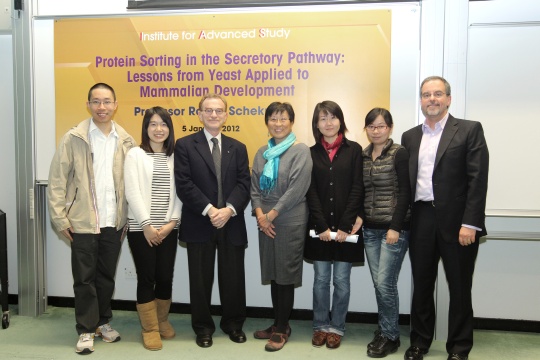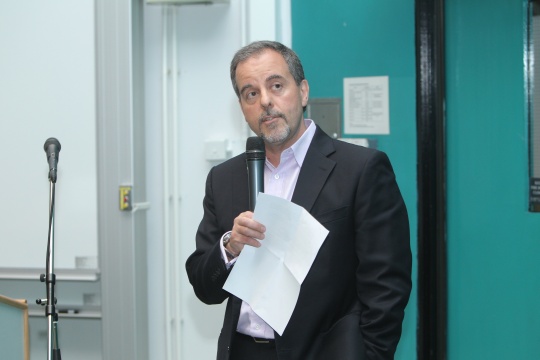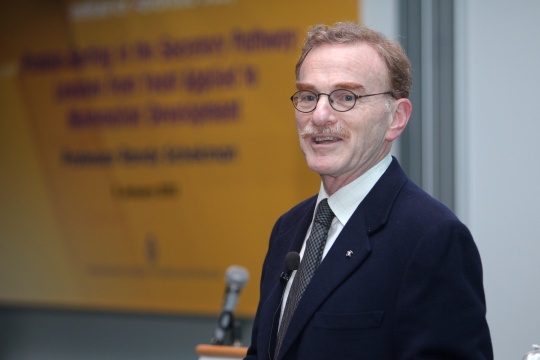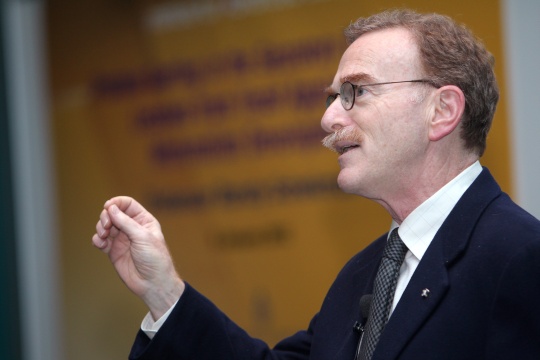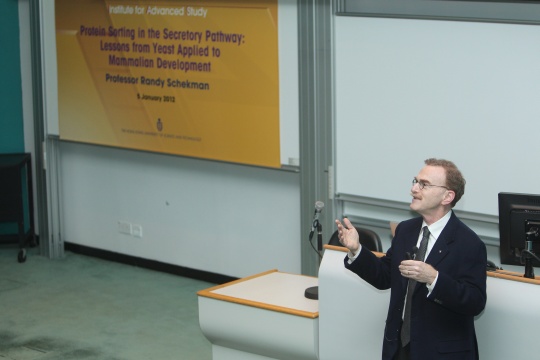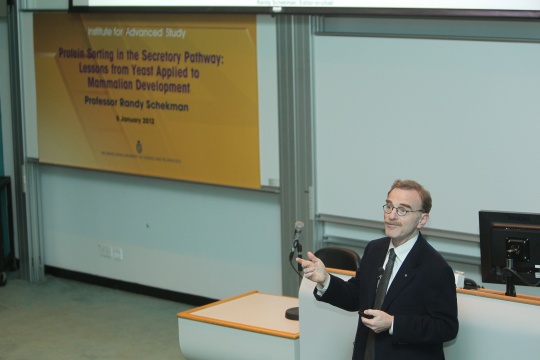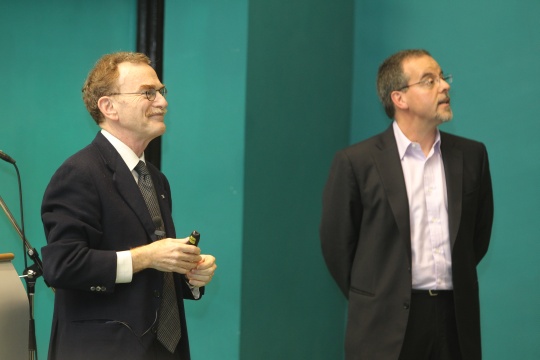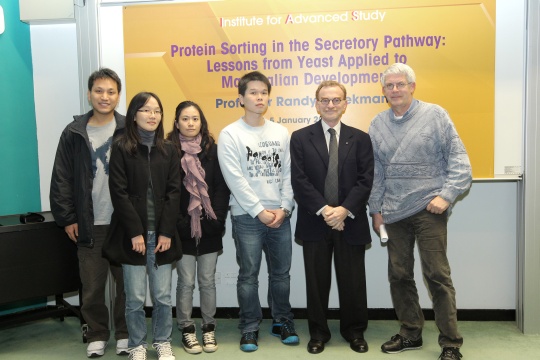Protein Sorting in the Secretory Pathway: Lessons from Yeast Applied to Mammalian Development
Abstract
The speaker's laboratory developed genetic and biochemical approaches to dissect the process of protein secretion in the baker's yeast, S.cerevisiae. The genes and proteins his lab discovered in yeast were found to organize the secretory pathway in all eukaryotes. Part of the pathway has been dissected using biochemical reconstitution of the formation and fusion of transport vesicles that mediate protein traffic from the endoplasmic reticulum to the Golgi apparatus. The speaker's lab has probed the molecular mechanism of defects in protein sorting that lead to human diseases of development such as spina bifida and a disease of craniofacial morphology that results in a tissue-selective defect in the secretion of collagen. Recent results suggest a role for ubiquitin conjugation of a coat protein complex in the envelopment of vesicles that covey collagen from the endoplasmic reticulum.
About the Speaker
Prof. Randy Schekman is a Professor in the Department of Molecular and Cell Biology, University of California, Berkeley, and an Investigator of the Howard Hughes Medical Institute. He studied the enzymology of DNA replication as a graduate student with Arthur Kornberg at Stanford University. His current interest in cellular membranes developed during a postdoctoral period with S. J. Singer at the University of California, San Diego. At Berkeley, he developed a genetic and biochemical approach to the study of eukaryotic membrane traffic. Among his awards are the Eli Lilly Award in microbiology and immunology, the Lewis S. Rosenstiel Award in basic biomedical science, the Gairdner International Award, the Amgen Award of the Protein Society, the Albert Lasker Award in Basic Medical Research, the Louisa Gross Horwitz Prize of Columbia University, the Dickson Prize in Medicine from the University of Pittsburgh, the Massry Prize, and the E.B Wilson Award of the American Society of Cell Biology. He has been awarded honorary doctorate degrees from the University of Geneva and the University of Regensburg. He is a member of the US National Academy of Sciences (NAS), the American Academy of Arts and Sciences, the American Philosophical Society and a Foreign Associate of the Academia Nazionale dei Lincei. In 1999, he was elected President of the American Society for Cell Biology and was appointed Editor of the Annual Review of Cell and Developmental Biology. In 2002, he was elected Chair of the Biochemistry Section of the NAS and was selected as Scientific Director of the Jane Coffin Childs Memorial Fund for Biomedical Research. In 2005, he was elected Chair of the Biology Class of the NAS and in 2006 he was appointed Editor-in Chief of the Proceedings of the NAS.
At UC Berkeley, Prof. Schekman has assumed a number of leadership positions in Departmental and campus affairs. In addition to serving a five-year term as Biochemistry Division Head, he served as Chair of the Department of Molecular and Cell Biology. Currently, he serves as Chair of the Chancellor’s Advisory Council on Biology, a virtual College of Biology that represents all 250 life science faculty distributed within the College of Letters and Science, School of Public Health, School of Optometry, School of Engineering, College of Chemistry, and College of Natural Resources. In 2004, Prof Schekman organized a campus-wide stem cell biology center to capitalize on California’s investment in the application of human embryonic stem cells to regenerative medicine.
For Attendees' Attention
Seating is on a first come, first served basis.

